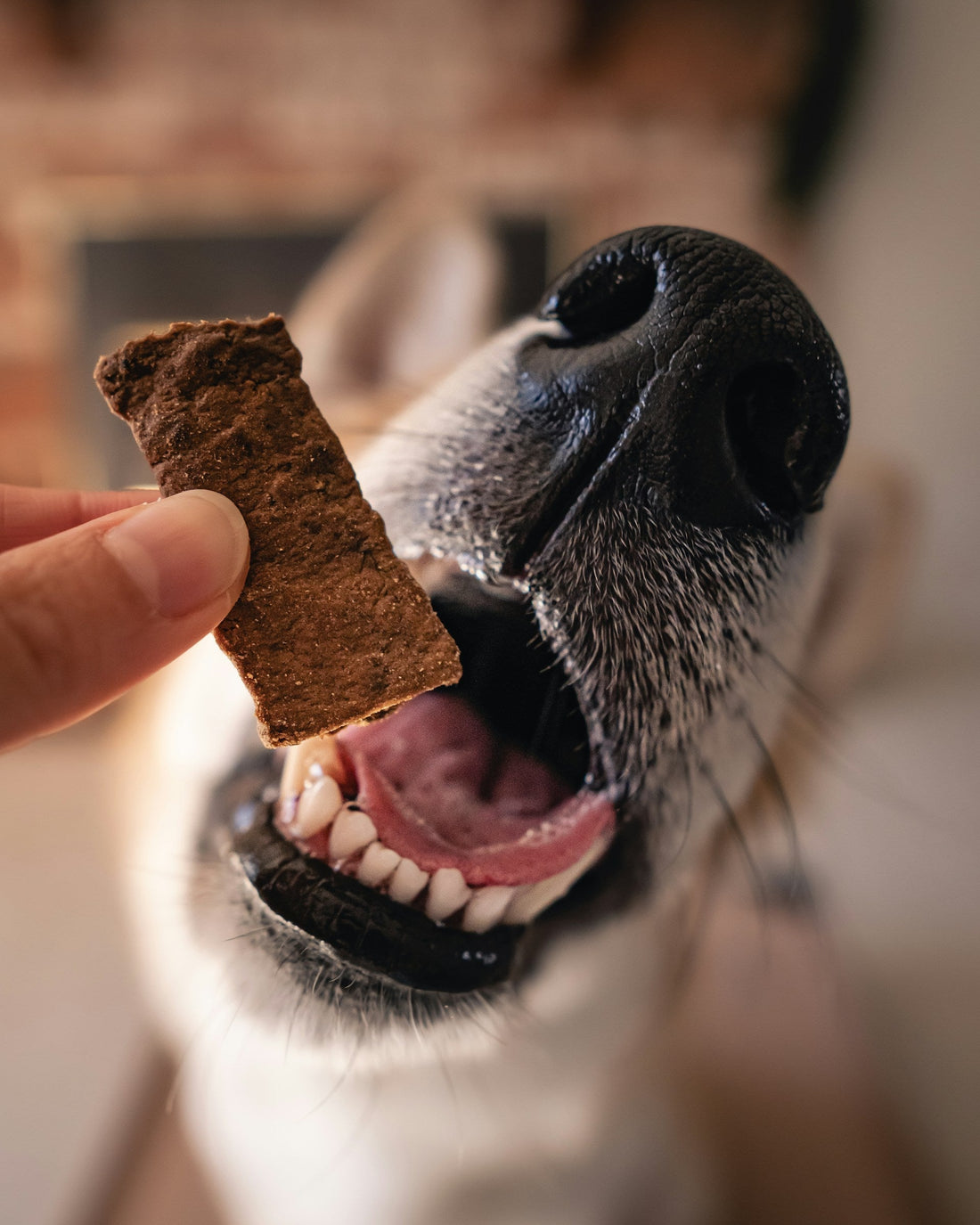
Variable Rewards: Why Your Dog Loves a Bit of Mystery
Share
Ever wonder why your dog keeps checking that old treat pouch even though it hasn’t produced a snack in days? Or why some pups get obsessed with squeaky toys or digging holes even when nothing exciting happens? That’s variable rewards at play—and it’s got some science behind it.
Who Figured This Out?
Back in the 1930s and 40s, psychologist B. F. Skinner was on a mission to understand how animals (and humans) learn. He built this thing called the “Skinner Box” (sounds spooky, but it’s just a controlled environment for testing behaviour), and he discovered something wild: when rats got a treat every time they pressed a lever, they eventually got bored. But when the treats came randomly—sometimes after one press, sometimes after five—they got obsessed. They kept pressing and pressing, just in case.
It’s called a variable ratio reinforcement schedule. And yeah, it works on dogs. And people. (Ever checked your phone for no reason? Same deal.)
What Does That Mean for Dogs?
Dogs are natural optimists. They’re always on the lookout for fun, food, or attention. When something good happens sometimes instead of every time, it actually makes the behaviour stronger. That unpredictability builds drive and excitement.
Here’s how it shows up:
-
Training: If your dog gets a treat every single time they sit, it’s predictable. Once they’ve nailed the behaviour, switching to random rewards actually makes the behaviour more reliable. They're thinking, “Maybe this time I’ll win the jackpot!”
-
Playtime: Ever notice how your dog keeps bringing the toy back, even if you don’t throw it every time? That’s variable rewards in action. They're gambling—and loving it.
-
Reinforcing bad habits (uh oh): If your dog barks and sometimes gets attention (even if it's you yelling), that barking gets reinforced more than if you always responded. Yup. Variable rewards can accidentally make unwanted behaviours stick.
How You Can Use It
✅ Make rewards unpredictable (in a good way)
Once your dog knows a behaviour well, start mixing it up. Sometimes a treat, sometimes a game, sometimes praise. Keep 'em guessing!
✅ Change the reward type
Dogs love novelty. Use toys, food, play, or even a chase. Variety adds value.
✅ Be mindful of what you’re reinforcing
If your dog gets into something you don’t want (like stealing socks) and sometimes gets a reaction from you, that reaction is a reward. Stay consistent with ignoring or redirecting!
TL;DR
B. F. Skinner figured out that randomness makes behaviour stronger. Dogs are natural gamblers—so use that to your advantage in training and play. Just remember, the jackpot doesn’t always have to be food. Sometimes it’s a “good dog!” or a cheeky game of tug.
April’s lesson? A little mystery goes a long way. 😉